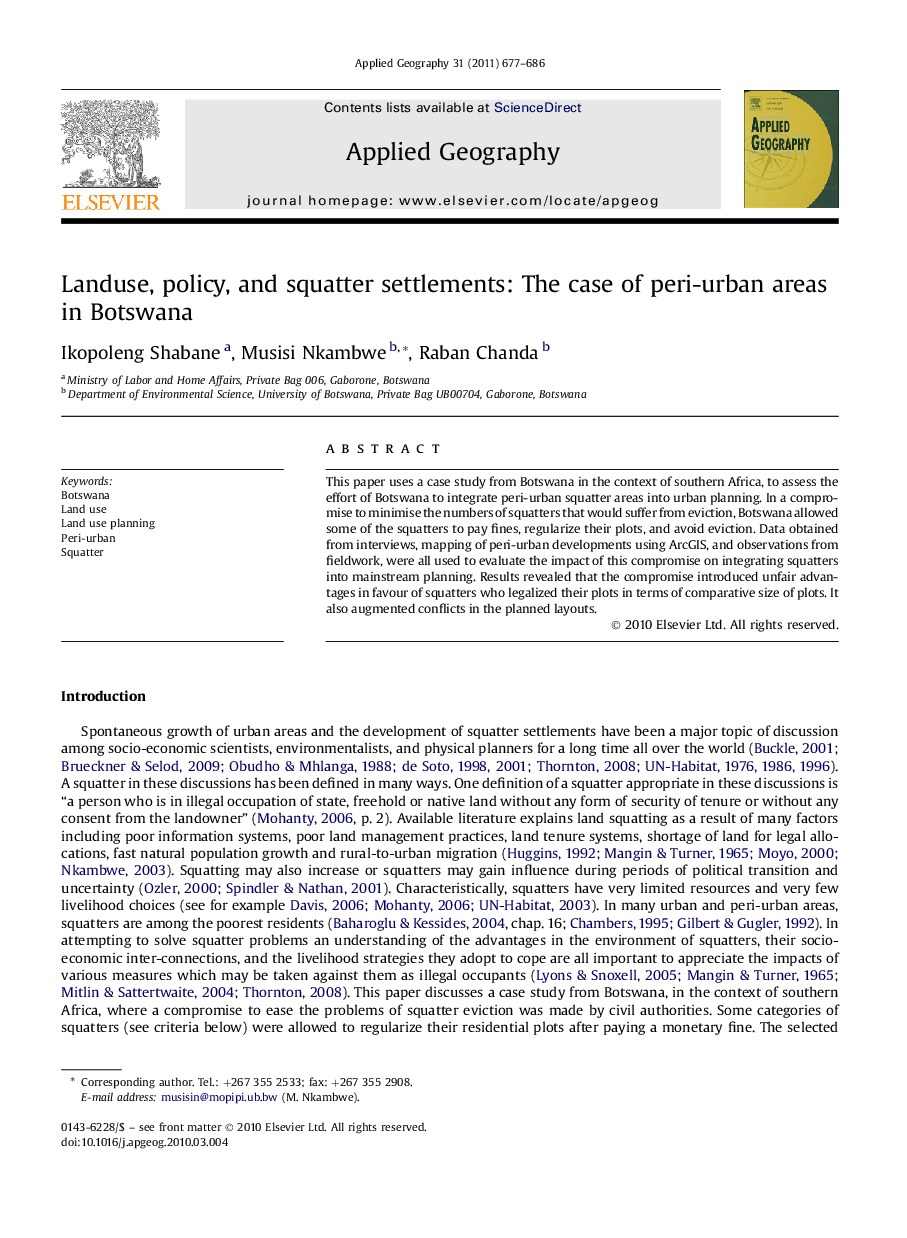| Article ID | Journal | Published Year | Pages | File Type |
|---|---|---|---|---|
| 83777 | Applied Geography | 2011 | 10 Pages |
This paper uses a case study from Botswana in the context of southern Africa, to assess the effort of Botswana to integrate peri-urban squatter areas into urban planning. In a compromise to minimise the numbers of squatters that would suffer from eviction, Botswana allowed some of the squatters to pay fines, regularize their plots, and avoid eviction. Data obtained from interviews, mapping of peri-urban developments using ArcGIS, and observations from fieldwork, were all used to evaluate the impact of this compromise on integrating squatters into mainstream planning. Results revealed that the compromise introduced unfair advantages in favour of squatters who legalized their plots in terms of comparative size of plots. It also augmented conflicts in the planned layouts.
